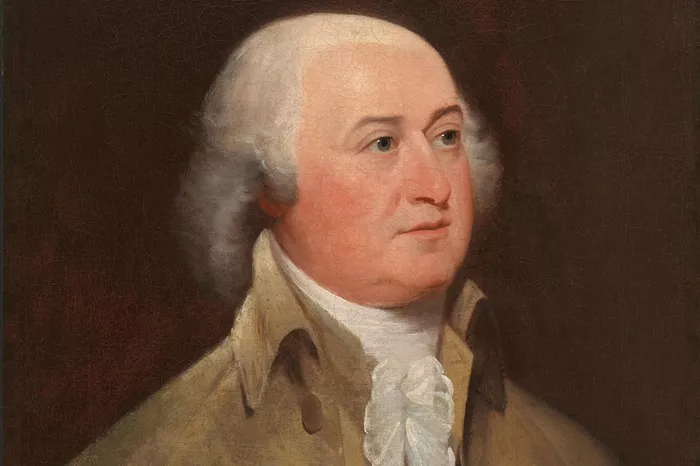February 8 has witnessed numerous significant events throughout American history, ranging from political milestones to cultural developments. This article will explore these events in detail, highlighting their historical context and impact.
What Happened on February 8 in American History?
Mary, Queen of Scots Executed (1587)
On February 8, 1587, Mary, Queen of Scots, was executed at Fotheringhay Castle. Her execution was the culmination of years of political intrigue and conflict between her and Queen Elizabeth I of England. Mary had been imprisoned for 19 years due to her claims to the English throne and her involvement in plots to assassinate Elizabeth. Her execution marked a significant moment in the power struggles of the time, illustrating the intense rivalry between Catholic and Protestant factions in Europe. Mary’s death not only ended her claim to the English throne but also heightened tensions between England and Catholic powers in Europe, leading to further conflicts in the following decades.
First Vice President Chosen by Senate (1837)
On February 8, 1837, Richard Mentor Johnson became the first Vice President of the United States to be elected by the Senate. This unusual circumstance arose because no candidate received a majority of votes in the Electoral College during the election of 1836. The Senate’s decision reflected the political dynamics of the time, as Johnson was a controversial figure due to his relationship with a Native American woman, which drew both support and criticism. His election highlighted the complexities of American politics and the evolving role of the Vice Presidency.
Delaware Votes Against Ratifying the 13th Amendment (1865)
On February 8, 1865, Delaware voted against ratifying the 13th Amendment, which aimed to abolish slavery in the United States. This vote was significant as it demonstrated the deep divisions within the country regarding slavery even after the Civil War had begun. Delaware’s rejection of the amendment indicated that not all states were ready to embrace abolition, reflecting lingering racial tensions and economic interests tied to slavery. Ultimately, the amendment was ratified by other states and became a crucial step towards civil rights for African American.
Founding of Boy Scouts of America (1910)
February 8, 1910, marked the founding of the Boy Scouts of America (BSA). Inspired by the British scouting movement initiated by Robert Baden-Powell, BSA aimed to promote outdoor skills, leadership, and community service among young boys. The organization quickly grew and became a significant part of American culture, emphasizing values such as citizenship and personal development. The BSA’s establishment reflected broader societal trends towards youth engagement and character building during this period.
Premiere of “Birth of a Nation” (1915)
The controversial film “Birth of a Nation” premiered on February 8, 1915, in Los Angeles. Directed by D.W. Griffith, it is often cited as one of the first feature-length films and is known for its groundbreaking cinematic techniques. However, it also faced severe criticism for its racist portrayal of African Americans and its glorification of the Ku Klux Klan. The film’s release sparked protests and debates about race relations in America that continue to resonate today. Its impact on both cinema and social attitudes towards race makes it a pivotal moment in American history.
First Execution by Gas Chamber (1924)
On February 8, 1924, Nevada State Prison carried out its first execution by gas chamber when Chinese gang member Gee Jon was put to death. This method was introduced as a more humane alternative to hanging or electrocution. The use of gas chambers would later become a controversial topic within discussions about capital punishment in America. The event marked a significant shift in execution methods and raised ethical questions that persist in contemporary debates about capital punishment.
Queen Elizabeth II Proclaimed (1952)
February 8, 1952, is notable for marking the proclamation of Elizabeth II as Queen of the United Kingdom following her father’s death. At just 25 years old, she ascended to the throne during a time when Britain was recovering from World War II and facing numerous challenges both domestically and internationally. Her reign would span decades and witness significant changes within Britain and across its former colonies. Elizabeth II’s ascension represents not only a personal milestone but also a pivotal moment in British history that would influence global politics.
Kennedy Administration Bans Travel to Cuba (1963)
On February 8, 1963, during escalating tensions between the United States and Cuba, President John F. Kennedy’s administration enacted a ban on travel by U.S. citizens to Cuba. This decision was part of broader Cold War policies aimed at isolating Cuba following Fidel Castro’s rise to power and nationalization efforts that threatened U.S. interests. The travel ban reflected growing fears about communism spreading in Latin America and set the stage for future confrontations between Cuba and the U.S., including events like the Cuban Missile Crisis.
Conclusion
February 8 has proven to be an eventful date throughout American history with each occurrence reflecting broader societal changes or conflicts shaping our nation’s trajectory over time—from political struggles surrounding slavery or civil rights movements pushing for equality—to advancements in technology impacting everyday life today.Through examining these events closely we can gain insights into how they have influenced contemporary issues we face now while also recognizing their significance within historical contexts that continue resonating throughout society today.This exploration serves not only as an informative account but also highlights our responsibility toward understanding past injustices so we may work collectively towards creating equitable futures moving forward together as one nation under shared values rooted deeply within democracy itself!
Related Topics:

